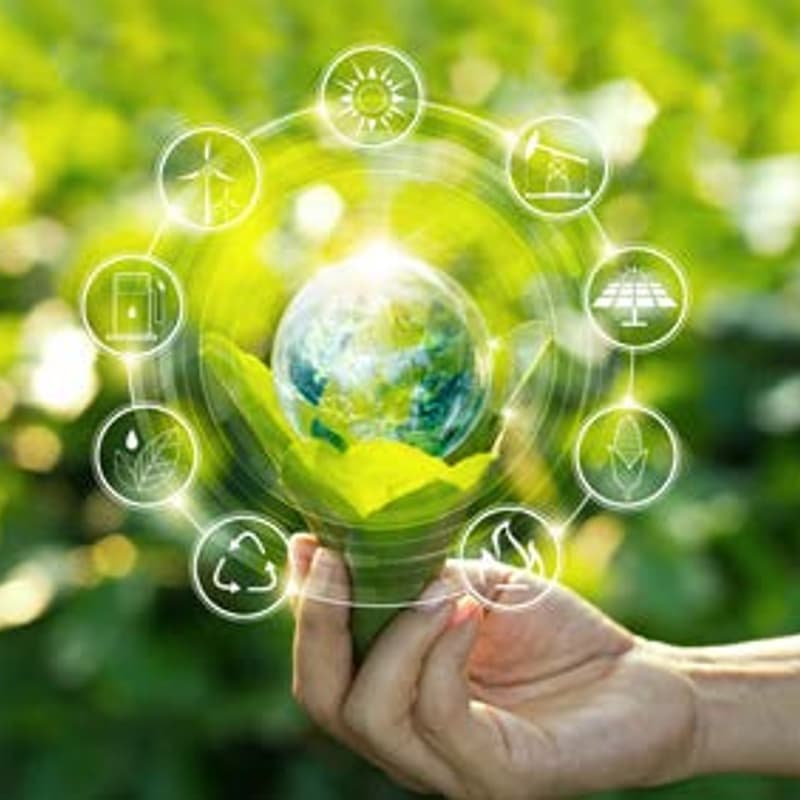

Circular Water Event: Food and Water Nexus
Exploring the challenges and opportunities of circular water management in the context of food production and consumption
Overview
· The circular water event is a collaborative initiative hosted by Parametrix and the Nature Conservancy, two organizations that are committed to advancing sustainable and resilient water solutions for people and nature.
· The event brings together experts, practitioners, policymakers, and stakeholders from various sectors and disciplines to discuss and exchange ideas on how to optimize the use of water resources in the food system.
· The event aims to raise awareness and foster dialogue on the food and water nexus, which refers to the interdependence and trade-offs between water availability and quality, food security and nutrition, and environmental sustainability.
· The event will showcase innovative solutions and best practices that apply the principles of circular water management, such as water reuse, recovery, and regeneration, to reduce water stress, enhance food safety and quality, and improve ecosystem health.
· Circular water management is based on the concept of a circular water economy, which recycles and recovers resources within the water use and treatment cycle to maximize value for people, nature, and businesses. The circular water economy exists when the public and private sectors optimize and recover valuable resources from water and wastewater in ways that fight climate change, support equitable economic development, and ensure water services for all. Circular water economy practices keep products and materials in use, regenerate natural systems, and design out waste and pollution. This model helps build a just and sustainable society and ensures it for the future.
Speakers
John Phillips (Moderator) has been working in the water industry for 25 years and is the Director of Integrated Watershed Management with Parametrix. John has experience in emergency planning, long range planning, climate change science, climate adaptation, wet weather issues, green infrastructure and co-benefit analysis. John has an extensive background in climate adaptation and applying climate science to pro-active actions. John has spent many hours working with the University of Washington Climate Impacts Group scoping specific studies to better understand how science impacts urban planning and utility planning. John’s work has been featured in the Intergovernmental Panel on Climate Change (IPCC) Fifth Assessment Report and the 2014 National Climate Assessment.
Susan Schlangen works for WSC. She is a Professional Engineer with 12 years of of civil and environmental engineering experience focused on water supply planning, wastewater infrastructure design, and recycled water solutions. She serves as Chair of the Oregon Regulatory Committee for the WateReuse Pacific Northwest Section and is leading several water reuse planning efforts in the State of Oregon. Susan recognizes the value of stakeholder collaboration, transparency, and integration to achieve the most complex water solutions required to meet the demands of our regulatory, community growth, climate change and other critical impacts on our water health today.
Kari Vigerstol is a respected leader in strategy development, scientific understanding and collaboration building for resilient food and water systems and works for The Nature Conservancy. She has deep experience leading programs and projects that address challenges of water and food security at the systems scale and advance thinking around sustainable solutions for communities, ecosystems and business. She has particular expertise in multi-stakeholder water management, corporate sustainability and target setting, climate adaptation, and nature-based solutions. Kari has a passion for bringing people together to solve wicked challenges through systems thinking, scientific understanding, authentic engagement and creative problem solving.
Objectives
· To provide a platform for knowledge sharing and networking among different actors and sectors involved in the food and water nexus.
· To identify the main challenges and opportunities of circular water management in the context of food production and consumption.
· To highlight the benefits and impacts of circular water management on water security, food security, and environmental sustainability.
· To promote the adoption and scaling up of circular water management practices and technologies in the food system.
Accessibility & Logistics
PLEASE BRING YOUR OWN BOTTLE FOR WATER! We will have a water refill station with light snacks provided and are accepting donations for event support.
This event is ADA-accessible. Please read the National Historic Landmark facility safety notice below.
COVID Protocol: Per the Washington State Department of Health, masks are no longer required. "People may want to continue to wear a mask for added protection against COVID-19, especially those who are immunocompromised, living with someone immunocompromised, or who may just feel safer wearing a mask. Everyone should assess their own personal risk when making this decision."
We have 50 chairs and may run out. Please bring a pillow and blanket if you plan to arrive late and would like to sit.
We will be taking photos and videos that may be published on social media. If you would not like your photo taken, please notify the event hosts upon arrival. Event hosts are not liable for audience photo publication but we will manage our owned media.
Transportation: Bus line 132 has stops nearby. Please carpool! Parking is available on-site and in the nearby Georgetown residential neighborhood.
Georgetown STEAM Plant is a national treasure, grounded in the local stories, memory, and identity of the Duwamish Valley. Built in 1906 to energize the region’s growing electric streetcar system, the STEAM Plant was awarded National Historic Landmark status in 1984. We want the Steam Plant to embody the values and priorities of YOU, our community, particularly related to serving as a hub for innovation in sustainability! Join for the Georgetown STEAM Plant Science Fair on September 21-22, 2024. Project and exhibit features will be accepted until August 15, 2024.
Submit your Science Fair project idea and find more information on our website: https://www.georgetownsteamplant.org/sciencefair